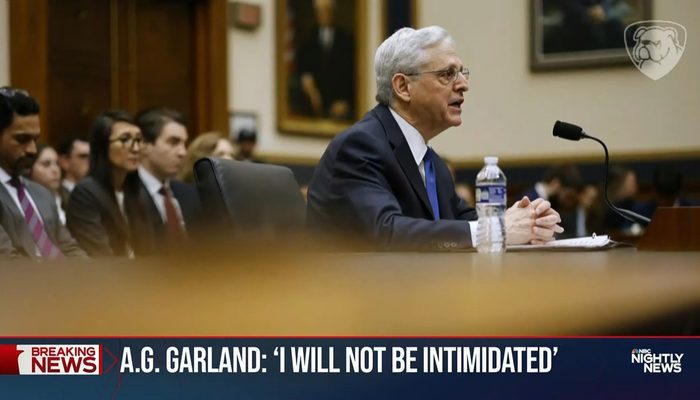Major news networks ABC, CBS, NBC, and PBS, while covering Attorney General Merrick Garland’s House hearing on Tuesday, took a biased turn. Instead of providing impartial news coverage, these networks portrayed the hearing as an act of heroism, portraying Garland as fighting against Republican intimidation bravely.
House Republicans initially called for the hearing, hoping to gain audio and video from President Biden’s meeting with Special Counsel Robert Hur regarding his handling of classified documents and concerns tied to the Trump Trial from last week. However, the coverage focusing on the House hearing by these networks seemed more inclined towards pushing their own scripted narrative. A distinct bias was visible, painting Garland in a favorable light, while Republicans were depicted as bullies.
Major aspects of the hearing were often hastily compressed, leaving out crucial pieces of essential context. The media seemed bent on depicting Garland as the “soft-spoken” person “pushing back against dangerous attacks” on the Justice Department. On the contrary, Republicans were depicted as “angry” and “refusing,” with accusations of launching “attacks” against Garland.
What could provide insightful coverage about issues brought up by Republican Officials, turned into an incomplete story drenched in drama. The storyline pushed by these networks looked more like a scripted drama than a report on real-life events, which was, while disappointing, not unexpected.
Republican dissatisfaction seems to stem from the fact that they did not get the full information they sought from President Biden’s meeting with Special Counsel Robert Hur. Merely depicting their questions and demands as attacks on the Attorney General does not serve the public interest. It sidesteps the issues that were raised and clouds the real questions that need answering.
The coverage effectively swept Republican officials’ concerns under the rug and opted for a sensationalist storyline, one that aligns with their narrative but doesn’t reflect the reality. This incomplete reporting can impact public opinion, depriving people of facts necessary to form their viewpoints.
In conclusion, media institutions hold the power of influencing public perception. It is essential that they provide balanced, unbiased, and fact-based reporting, especially in such important issues relating to national governance. Portraying one side as the ‘hero’ and the other as the ‘villain’ only detracts from the pivotal questions standing before us, setting dangerous precedents for the future.



